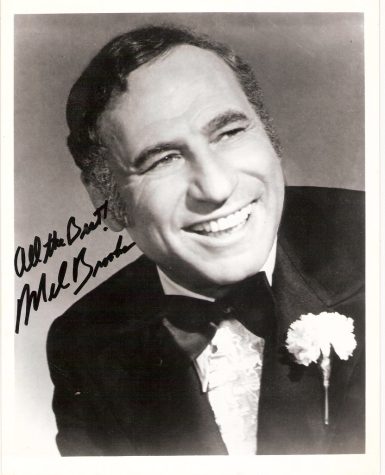Schuppel’s Scoop: the value of satire
Feb 4, 2022
This past weekend, I revisited a childhood classic with my dad: Mel Brooks’ “Spaceballs.” The rewatch reminded me of the importance of satire in every form of media imaginable; there is much to be learned from the greats who have produced social commentaries through the comedic lens.
Merriam Webster defines satire as “a literary work holding up human vices and follies to ridicule or scorn.” There are an infinite number of examples of satire in the media that surrounds us, with some of my favorites from the past several decades being “This Is Spinal Tap,” “Blazing Saddles” and “What We Do in the Shadows.” What is it exactly that has stood out to me with these particular films and their satire?
“This is Spinal Tap” (1984) is a creative mockumentary in the early age of the subgenre from Rob Reiner. The story is based off of the rock and roll documentaries of the 1980s. Showing the eccentricities and the borderline idiocy of the members of Spinal Tap serves as a great example for audiences about the illusion of glamor that is associated with touring rock bands. Even Ozzy Osbourne himself stated that he did not find the movie funny due to believing it was a documentary based off of its accuracy.

“Blazing Saddles” (1974), along with a lot of Mel Brooks’ filmography, exists on a different plane of fame and importance in cinema. Brooks was consistently ahead of the game in creating humor inspired by difficulties faced in society, most famously with this film, “Spaceballs” and “The Producers.” While Brooks typically discusses the persistent antisemitism in society, with his Jewish heritage and experience fighting in World War II, “Blazing Saddles” is primarily focused on the rampant shows of racism in our media and in life. Written alongside Richard Pryor, the film is a perfect satire of the Western genre and how we are raised surrounded by media that shows these displays of racism. It is a true work of genius and its messages hold importance to this day.
Another recent entry in the mockumentary genre is “What We Do in the Shadows” (2014), which is the predecessor to the television series of the same name. Written and directed by New Zealand comedians Jemaine Clement and Taika Waititi, the story follows a group of vampire roommates carrying out their daily lives. While the plot seems simplistic enough to skim past any underlying messages, there are still lessons to be learned from a ridiculous story like this. The importance of reliable friends, needing a sense of community when you are far from home and polar opposite groups uniting, along with much more.
From these films and many other satirical pieces, I have learned more about the human experience and wrongdoings in the world than history textbooks throughout my education. Effective stories that have stuck with me throughout my life have been able to make me reflect on the less picturesque parts of the world; I’ve learned about everything from friendship to widespread oppression from satire. While it might be uncomfortable to sit through a fictitious musical about Hitler, as seen in “The Producers,” or it might be hard to read George Orwell’s darkly humorous writing, these resources are almost as educational as that of retellings of real events.
Exposure to discomfort in the satirical area media with social justice, or any human experience, will always act to serve and be valuable parts of history and effective teaching. Do yourself a favor and watch more Mel Brooks films and read more dark and cautionary fiction like “Animal Farm.” Learn from the genius literary form of satire.













